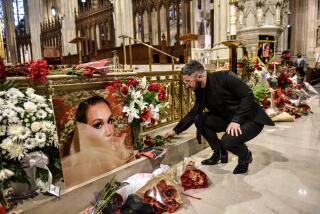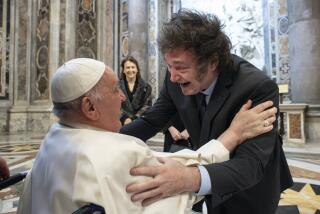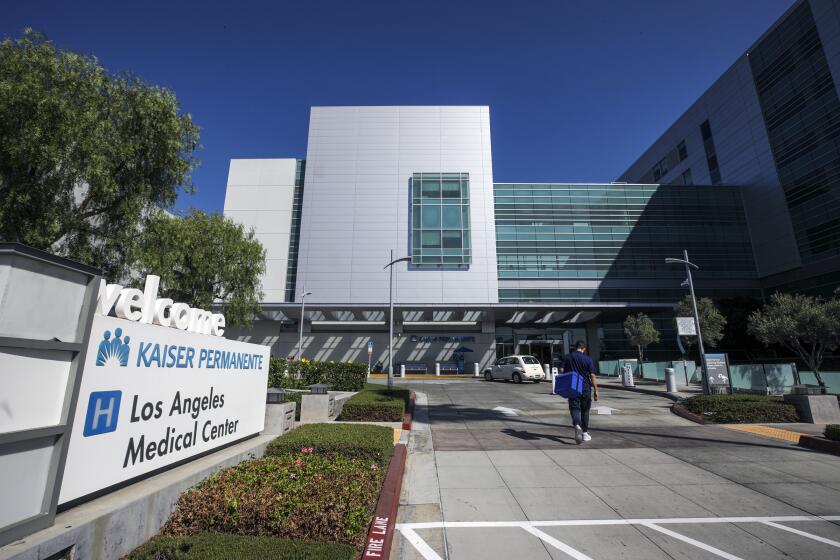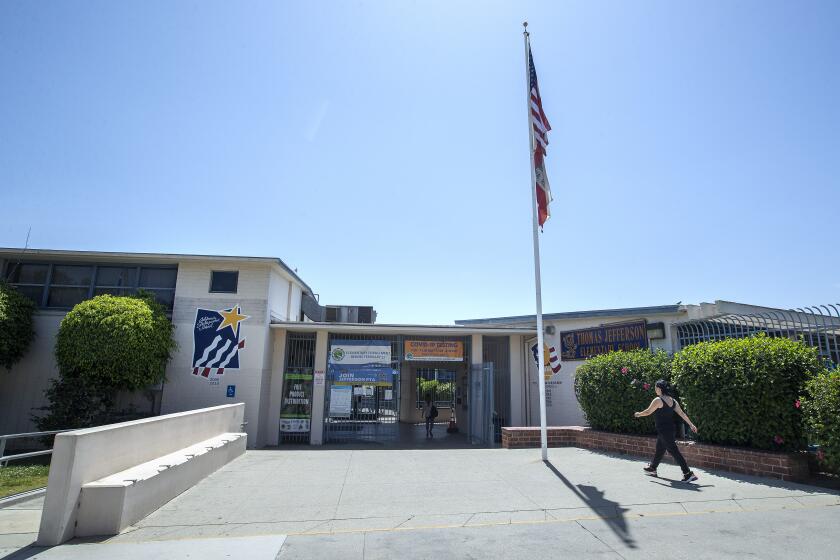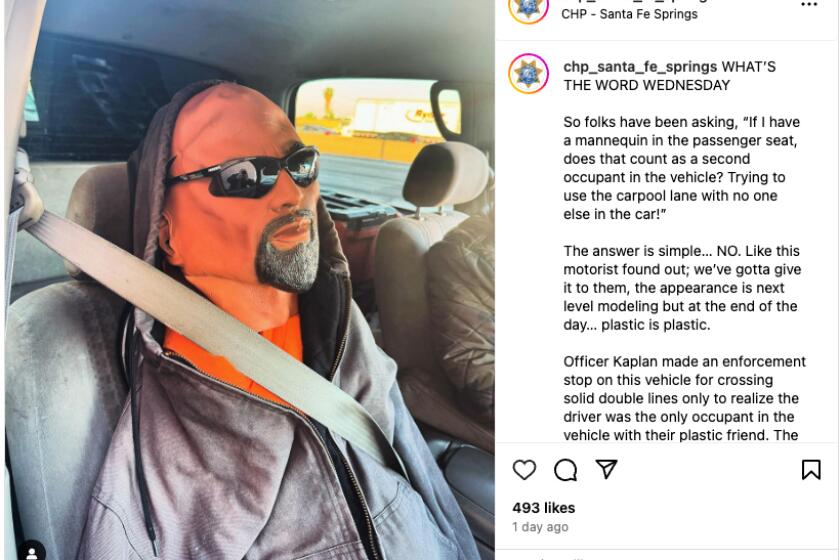Protesters confront parishioners over Serra canonization
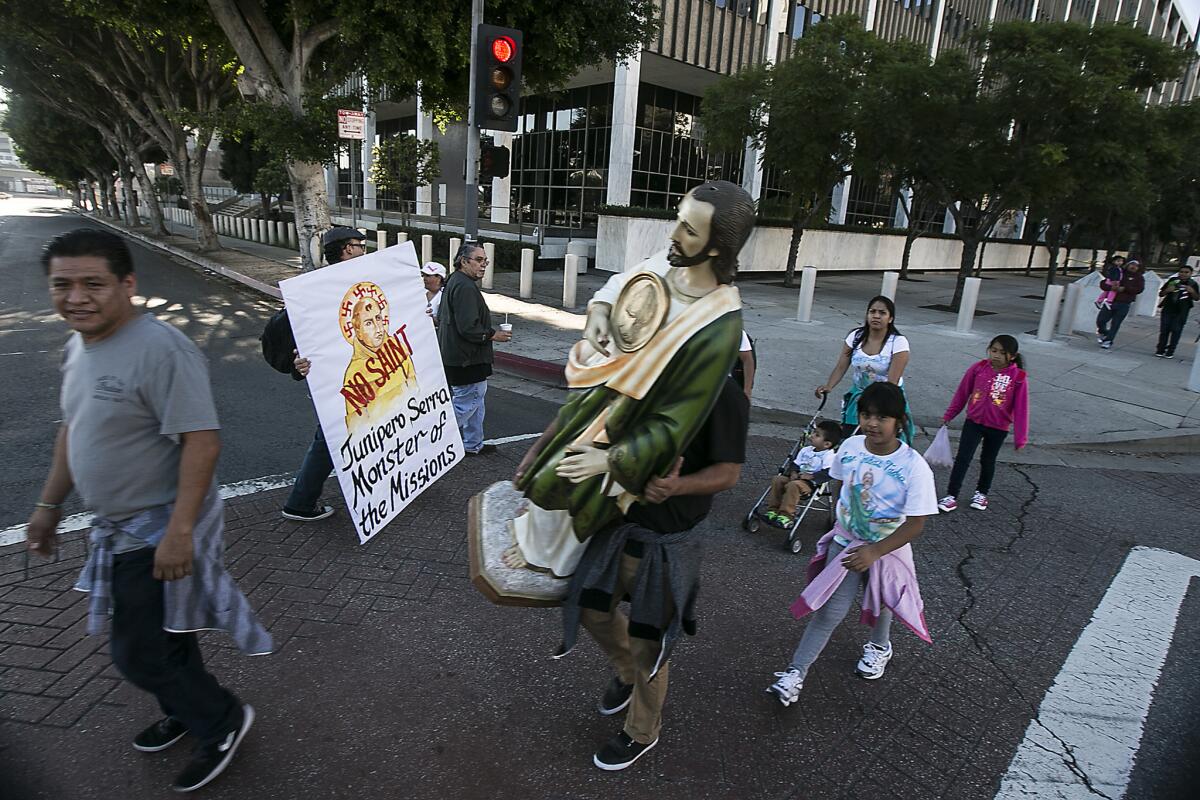
Hoisting a sign depicting Archbishop Jose Gomez with a toothbrush mustache and a swastika medallion, a dozen people gathered outside Sunday Mass at the Cathedral of Our Lady of the Angels downtown to protest the proposed canonization of Father Junipero Serra.
Olin Tezcatlipoca, director of the Mexica Movement, an indigenous-rights group, said Serra and the California mission system he founded were responsible for the Spanish “genocide” of native peoples. Gomez, who heads the Los Angeles Archdiocese and has called Serra one of his “spiritual heroes,” refused to meet to discuss the group’s objections, Tezcatlipoca said.
“Serra set up forced labor camps, death camps,” Tezcatlipoca said as the group gathered in front of the Father Serra statue across from Olvera Street for the short march to the gates of the cathedral. “Women and children were raped the same way as the pedophile priests, and the church has hidden that.”
A spokeswoman for the archdiocese said she didn’t know of the Mexica Movement, which has taken part in local immigration and other protests since the 1990s, and would have no comment.
Serra’s complex legacy has sharply divided people in and out of the Catholic Church since the Pope Francis’ surprise announcement last month saying that he planned to grant the missionary’s long-sought sainthood.
Although schoolchildren are taught Serra and his order of Franciscans created a chain of agricultural and livestock centers filled with industrious workers, the Spanish also flogged natives who disobeyed, captured those who tried to escape and decimated villages with their European diseases.
Serra’s supporters said he fought against enslaving the Indians and sought mercy for native rebels after an uprising at the San Diego Mission in 1775. Father Ken Laverone, a Sacramento priest who has helped lead the West Coast Franciscans’ campaign for Serra’s canonization, said critics are trying to judge an 18th century man through a 21st century lens.
“To blame Serra specifically is putting the blame in the wrong place,” Laverone said. “He considered Native Americans as human beings.”
Protesters, whose signs also included an etching of Serra with swastikas added to his halo, said the same rationale could be used to excuse Hitler’s crimes.
“Didn’t they have the Ten Commandments then? Did they teach the golden rule?” Tezcatlipoca said.
Some of the churchgoers approached Sunday said they had never heard of Serra or about the pope’s announcement. The few who had were ambivalent about the man and the demonstration.
“Father Serra is a very controversial figure, and both arguments have their justifications,” said Swiss-born Charles Liechti, 78, a retired researcher. “Certainly the Spanish have not been very kind to natives here.”
Vincent Rodriguez, a parishioner from Echo Park, confronted the demonstrators, saying, “Don’t you guys believe in forgiveness?”
“Don’t you believe in respect?” said Rodriguez, 53, a social service outreach worker. “You’re hating the world.”
“No, you’re hating,” protesters responded.
“No, I love you guys,” Rodriguez responded.
The pope has said he will canonize Serra during a U.S. trip in September. California is not on the schedule.
More to Read
Start your day right
Sign up for Essential California for news, features and recommendations from the L.A. Times and beyond in your inbox six days a week.
You may occasionally receive promotional content from the Los Angeles Times.

